























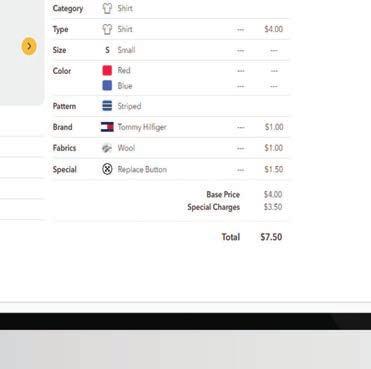
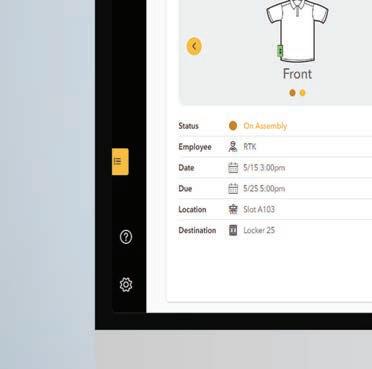
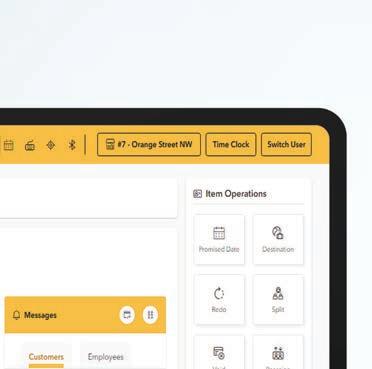
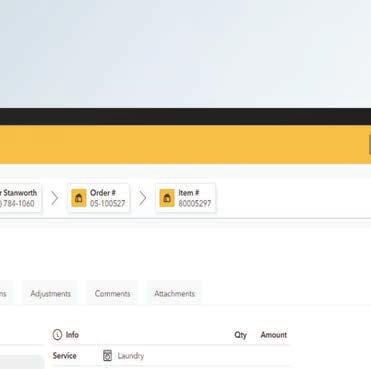
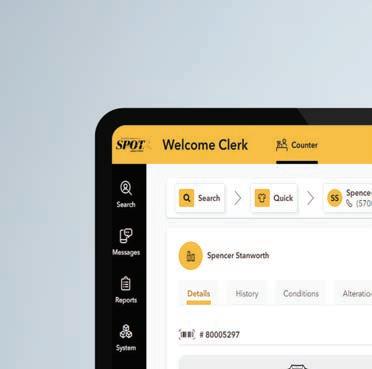
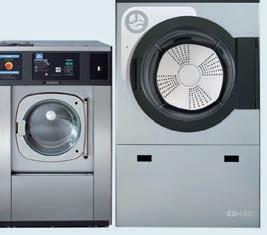
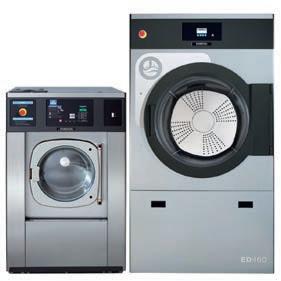
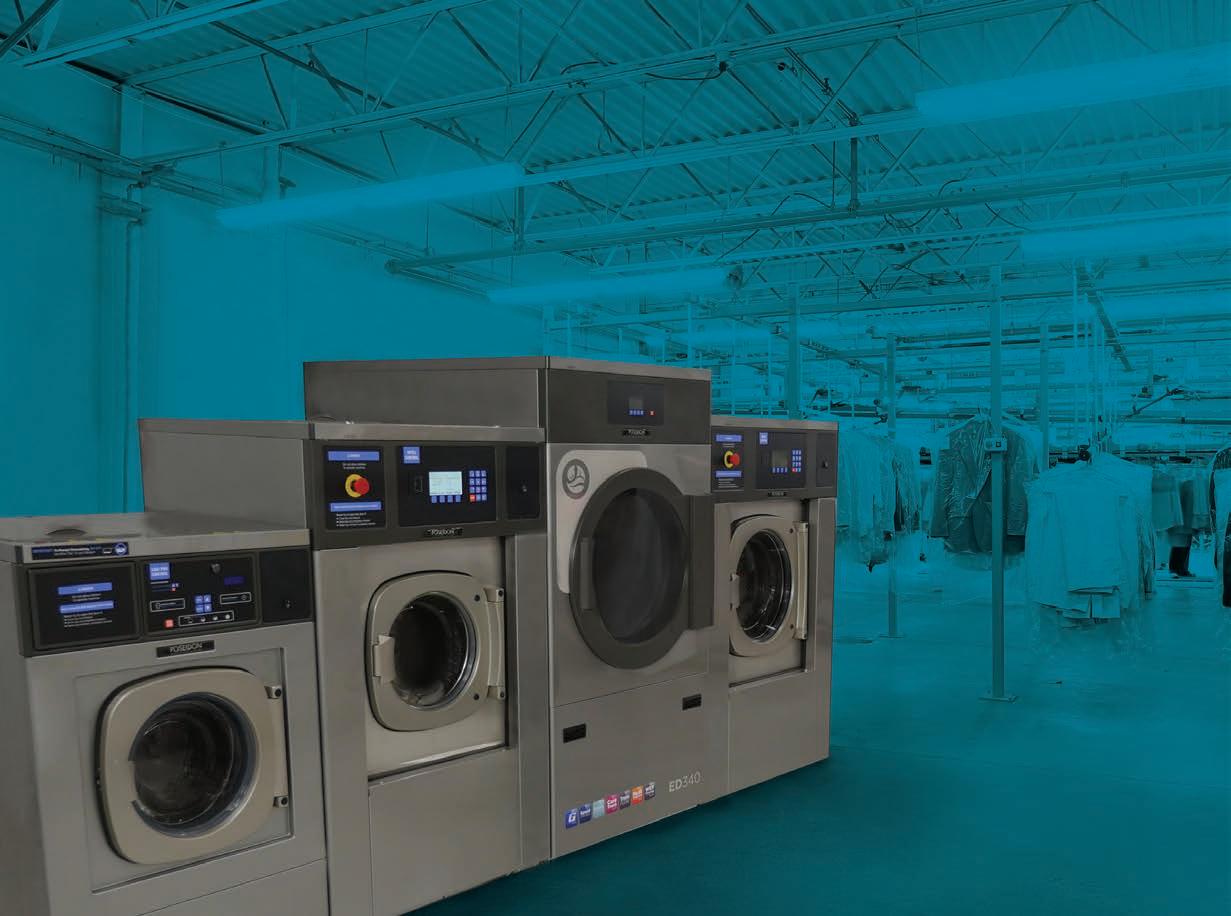
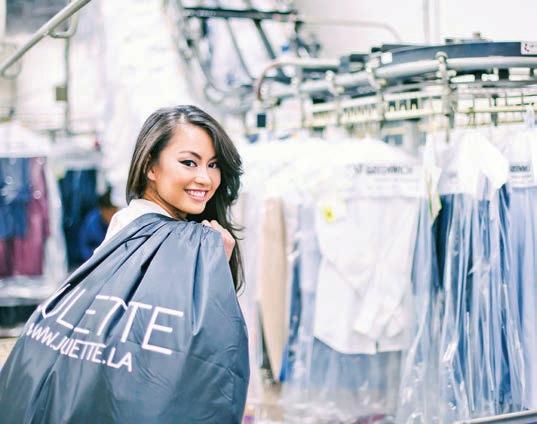
March 2021
Vol. 87, No. 11






They are the key to your future, but what are you doing today to attract tomorrow’s customers? Younger customers have grown up in a di erent world from their parents and have di erent needs—and demands—of their dry cleaners. The old methods of marketing and outreach have become outdated; you might have to leave your comfort zone to attract this new breed of customer and keep them loyal to your store.
Dave Davis, EditorFire, flood or other disasters can change a family’s life, but cleaners who are able to restore some of their belongings can provide their clients with a much-needed sense of normalcy. The act of restoration is only part of the story, though. Restoration is often about human connection as much as the chemistry and skills necessary to repair and renew the items involved.
Dave Davis, Editor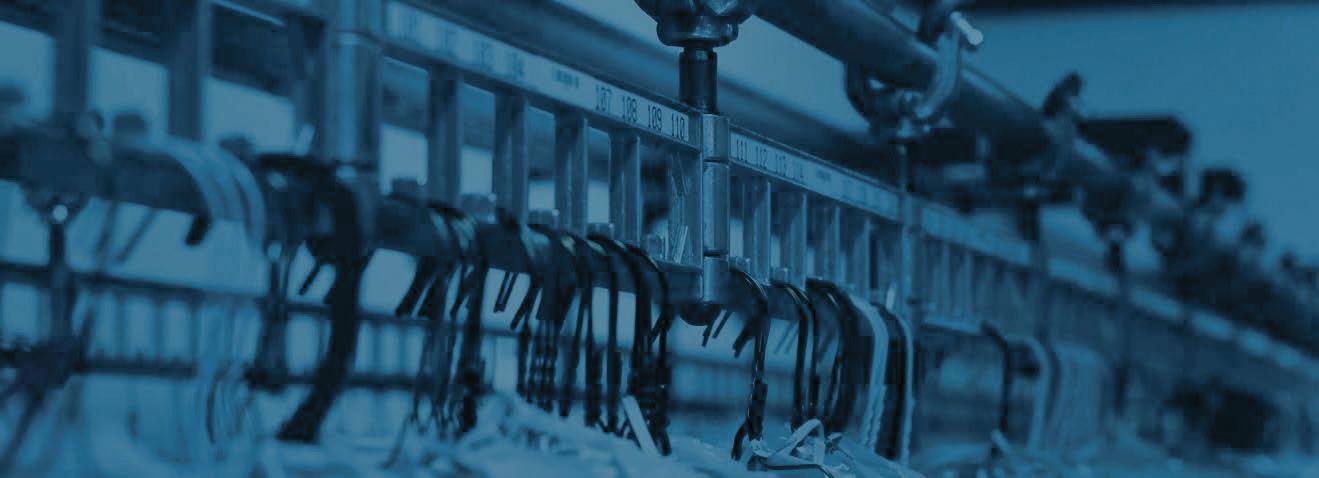
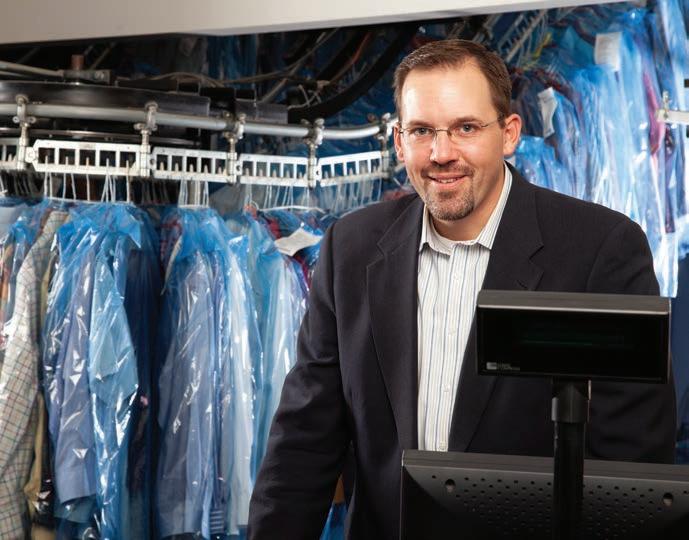
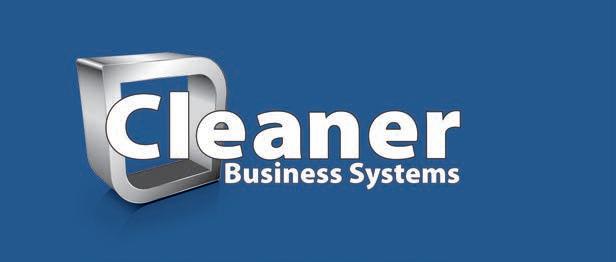
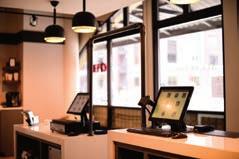
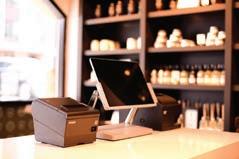
Cleaners are often asked to turn back the hands of time.
Sometimes, the request is simple, such as removing a stain left by a spilled glass of wine or an errant piece of spaghetti. Other requests are far more demanding. A family recovering from a fire or flood could require professional help to restore their treasured belongings. Whatever the case, it often falls to the dry cleaner to return a garment or other valued item to its previous state.
The drycleaning profession is different from almost any other in that cleaners aren’t selling items but are receiving their clients’ valued possessions. This is more than a simple transaction; cleaners are expected to erase the signs of the past and give their customer’s belonging a brighter future.
The first feature in this issue, “Restoring Textiles to Their Former Glory,” examines the process of restoration after a disaster strikes. When an individual or family goes through a traumatic experience, they ache to return to the normal lives that they had known before. When a restoration expert can undo damage to their belongings— from their everyday items to valued keepsakes and heirlooms—they make a huge positive impact on their clients’ lives that goes far beyond the act of cleaning.
The second feature, “Adding Youth to Your Customer Base,” focuses on building up the list of clients your store serves for future growth. The younger customers coming in may have different demands of their dry cleaner than their parents and grandparents did. They certainly have different preferences when it comes to their cleaner’s marketing and communication styles. As new customers start to take the place of older patrons, cleaners who don’t take these shifting desires and demands into account might find their client base shrinking.
In this issue, we’ve brought back our Showcase series. This time, we’re highlighting drycleaning machines. If it’s time to re-evaluate your store’s equipment, take a look at what the industry has to offer and see if there’s a match between your needs and these machines. ADC
American Drycleaner (ISSN 0002-8258) is published monthly except Nov/Dec combined. Subscription prices, payment in advance: U.S., 1 year $46.00; 2 years $92.00. Foreign, 1 year $109.00; 2 years $218.00. Single copies $9.00 for U.S., $18.00 for all other countries. Published by American Trade Magazines LLC, 650 West Lake Street, Suite 320, Chicago, IL 60661. Periodicals postage paid at Chicago, IL and at additional mailing offices.
POSTMASTER, Send changes of address and form 3579 to American Drycleaner, Subscription Dept., 440 Quadrangle Drive, Suite E, Bolingbrook, IL 60440. Volume 87, number 11. Editorial, executive and advertising offices are at 650 West Lake Street, Suite 320, Chicago, IL 60661. Charles Thompson, President and Publisher. American Drycleaner is distributed selectively to: qualified dry cleaning plants and distributors in the United States. The publisher reserves the right to reject any advertising for any reason.
© Copyright AMERICAN TRADE MAGAZINES LLC, 2021. Printed in U.S.A. No part of this publication may be transmitted or reproduced in any form, electronic or mechanical, without written permission from the publisher or his representative. American Drycleaner does not endorse, recommend or guarantee any article, product, service or information found within. Opinions expressed are those of the writers and do not necessarily reflect the views of American Drycleaner or its staff. While precautions have been taken to ensure the accuracy of the magazine’s contents at time of publication, neither the editors, publishers nor its agents can accept responsibility for damages or injury which may arise therefrom.
American Drycleaner, March 2021
Publisher
Charles Thompson
312-361-1680 cthompson@ATMags.com
Associate Publisher/
National Sales Director
Donald Feinstein 312-361-1682 dfeinstein@ATMags.com
Editorial Director
Bruce Beggs 312-361-1683 bbeggs@ATMags.com
Editor Dave Davis 312-361-1685 ddavis@ATMags.com
Digital Media Director
Nathan Frerichs 312-361-1681 nfrerichs@ATMags.com
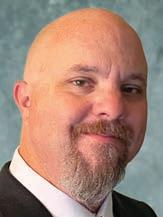
Production Manager
Mathew Pawlak
Advisory Board
Jan Barlow Mike Bleier
John-Claude Hallak Wesley Nelson Kyle Nesbit Mike Nesbit Fred Schwarzmann Beth Shader Vic Williams
Contributing Editors
Dan Miller
Diana Vollmer Martin Young
Office Information
Main: 312-361-1700
Subscriptions 847-504-8175 ADC@Omeda.com www.american drycleaner.com

The art of restoration is about people as much as about textiles
By Dave Davis, EditorThe practice of restoration for a dry cleaner is more than just the chemistry of restoring textiles. Often, it’s restoring a sense of normalcy in someone’s life. This was a lesson Michelle Windsor-Baughman learned early in her career.
“Imagine you’re 4 years old, and the last memory you have of your home is being pulled from your bed in the middle of the night without your ‘Lambie,’ and watching from outside, seeing only flames,” she says.
When Windsor-Baughman arrived on the scene the next morning to survey the damage and discuss restoration with the homeowners, she saw a sad little girl. The girl’s mother said the stuffed lamb had been with her daughter, Maddie, since she was born. Windsor-Baughman found “Lambie” as she scouted the scene, much to Maddie’s delight.
“I explained that I was taking the lamb to the stuffed animal doctor,” she says, “and would be back in 24 hours. After three hand washes and a deodorizing process, we were able to remove all the soot and odor. ‘Lambie’ had a small burn mark on her hind, so we sewed a heart patch over it for the final restoration. We delivered peace, secu rity and a sense of stability — not just a stuffed animal. This fueled my heart for restoration.”
Windsor-Baughman, owner of Dutch Girl Cleaners, based in Walnut Creek, Calif., never forgot that lesson. “Restoration is a vessel to restoring peace and security when all feels lost,” she says.
Eric Pyne, president of Urban Valet Cleaners in Hamburg, N.Y., understands that this responsibility must be front and center in a cleaner’s mind when working on restoration projects.
“In dealing with homeowners who have experienced loss, you have to be very sensitive to their needs,” he says. “Emotionally, losing one’s personal belongings rates only behind the loss of a close family member. So, it’s generally a significant event for the homeowner, and our level of professionalism and empathy goes a long way in determining customer satisfaction.”

Part of that psychology, however, is not making unrealistic promises.
“We first assess if the item is even restorable,” says Pratik Patel, owner of Viking Cleaners in Phoenix. “If deemed salvageable, we proceed to remove the odor, if needed. Then it is sent to the applicable department: dry cleaning, laundry or hand cleaning. If we cannot restore the item to pre-loss condition, however, it is considered non-salvage.”
“It takes years of experience to know what is restorable
and what is not when scoping a new loss,” Pyne says. “There are so many variables to consider — the type of textile being restored, proximity to fire, amount of heat generated, partial combustion/full combustion, and so on.”
“Once you have followed the manufacture care label and cannot remove or repair the contaminant, then it’s considered unsalvageable,” Windsor-Baughman says. “At this time, you move forward and take a more aggressive ap proach, moving a dry-clean-only item to wet cleaning, for example, to attempt further restoration. If the item cannot survive that process, it was already deemed unsalvageable and remains so; however, we hold a restorable rate of 98%.”
The restoration process often begins at the disaster site.
“It would be rare that we didn’t start the process at the loss site, where the damage occurred,” Windsor-Baughman says. “We’ll arrive onsite to meet with the client, take photos of damaged items, determine what was affected and prepare a scope of repair for services.”
Wayne Wudyka was new to the drycleaning business when a restoration opportunity came through his door — and completely changed his business model.
“We got into restoration, frankly, by accident,” he says. “We had a retail customer come in, and she was distraught. She had a fire in her house. Her insurance adjuster told her she could use her own dry cleaner to clean her clothes and asked if we did that sort of work.”
Wudyka said yes, picked up her clothes, and got to work: “It turned out to be about a $6,000 job, and at the time, we were doing about $5,000 a week over the counter with hun dreds of customers,” he says. “A light bulb went off.”
He began to develop relationships with local general contractors and adjusters to do restoration work and started what would go on to become the Certified Restoration Drycleaning Network (CRDN).
Wudyka has been CEO of the company since its inception in 2001. “My biggest competitor when I started was the dumpster,” he says. “The adjusters just lacked awareness. They would throw stuff away and write a check.”
CRDN has developed formalized solutions to restoring textiles and other items — including artwork and electronics — damaged by smoke, soot, mildew and other contaminants. The company has franchise partners across the nation, as well as Canada and the U.K.
Wudyka believes that being a part of a larger organization is crucial to performing restoration services the way they need to be done. Apart from training opportunities and having a network of experts available for specialized cases, working with insurance companies as a larger organization is often far more manageable than dealing with them as an independent company.
“We’ve written vendor contracts with the insurance companies and have live contracts with a couple dozen carriers,” Wudyka says.
It also makes it easier on the homeowner if the insurance company can recommend someone in a network, says Holly Murry, president of FRSTeam, an international franchise organization in the U.S. and Canada.
“Franchise systems provide support for sales, operations, technology and industry know-how,” she says. “We’ve put into place more than 50 national programs directly with insurance carriers.”
Outside of a franchise, there are still opportunities to work together and become part of a larger organization. Patel’s and Pyne’s businesses are part of the North American Restoration Drycleaners partnership (NARD).
“NARD is unique in that we are a very close-knit group of operators,” Pyne says. “We all own our exclusive territories, so we’re not competing with one another. We are a partnership in which no member has a controlling interest, and we pay no royalties. So, we have weekly training calls, best practices forums, we visit one another’s plants, and we correspond almost daily, staying current with the changing landscape.”
Whether in a group or working as a single company, cleaners must navigate the sometimes confusing path to insurance reimbursement, along with other challenges.
“Companies that have the strongest relationships with customers and the insurance companies tend to have the highest levels of success,” Murry says, “and, as with many industries, great relationships can positively influence current and future opportunities.”
“In the insurance restoration line of work, vendors service multiple customers at the same time,” Pyne says. “The insured is, of course, a customer, but the insurance carrier and their representatives are customers, as well, and sometimes you have to add in third-party administra tors (TPAs) and public adjusters who are representing the insured. So, you’re sometimes negotiating relationships with many parties at the same time, all of whom have dif ferent — and sometimes competing — interests.”
Gary McPherson, owner of McPherson Cleaners in Burlington, N.C., has structured his business to deal more with the consumer than with the insurance agencies.
“We deal 99% with the customer,” he says. “Basically, they go through their insurance and pay us through that. We might be delayed as far as receiving a payment, but we keep a good working relationship with them.”
There are other challenges that come with working in the restoration field, Wudyka cautions, that cleaners might not think about when starting out.
“The easiest part of this is the cleaning,” he says. “The hard part is understanding how the homeowner works, how the insurance company works and how the contractors work. Those are difficult things to understand if you’re doing this on a one-time basis.
“Solid communication with the homeowner in setting expectations is critical, but you should also be prepared to have a lot of storage space. The house’s reconstruction could take up to a year, and sometimes the homeowner can’t immediately take their belongings back, so you have to have storage. You should be prepared to carry a lot of receivables, as well, and not expect to get paid right away. Those are big hurdles for a lot of cleaners. I always tell people to go in with your eyes open.”
While most homeowners who need restoration after a disaster would like everything they own to be brought back, all items are not created equally. While they can usually replace clothes if necessary, other one-of-akind items—like Maddie’s “Lambie”—hold far more than monetary value. In this case, successful restoration means the world to both the customer and the cleaner, and many have their favorite success stories.
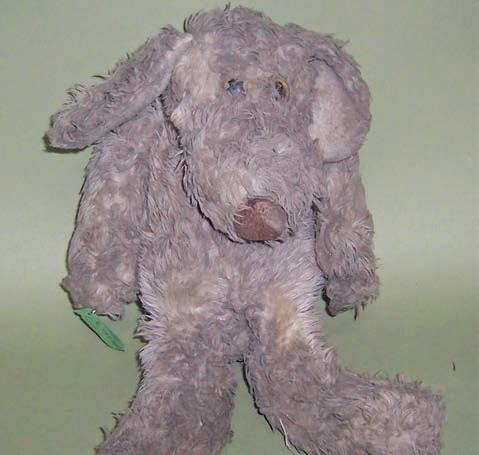
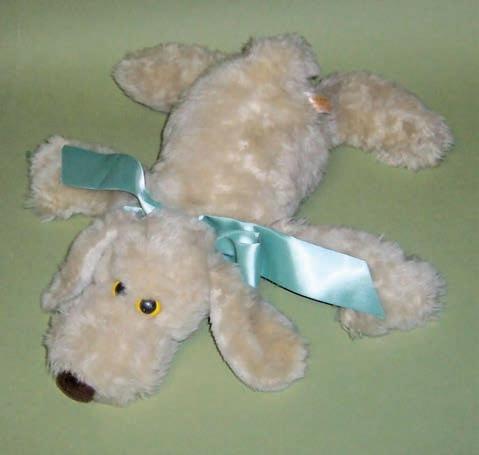
“We were able to restore an heirloom quilt that had been handed down for six generations,” Patel says. “Each generation attached a custom knitted panel to the quilt as it was passed down. The homeowner was very pleased that we could restore it properly and that they could continue to pass it on to future generations.”
“We completed a loss for the widow of a band member from a well-known ’60s-era band, and it included the
singer’s stage costumes and memorabilia,” Pyne says. “We were pleased to report that we were able to save everything for the family.”
Not all restoration jobs come as a result of a disaster, however. One of McPherson’s biggest “saves” came as the result of a celebration.
His company had done restoration work for a race car driver after a house fire, which involved not only clothes but racing gear and memorabilia. So, when the driver needed restoration services again, McPherson got the call.
“He had just won a national championship,” McPherson says, “and he was doused with champagne as they normal ly do to celebrate. After all the hoopla was over, somebody had taken his racing uniform, balled it up, threw it over in a corner — and they forgot about it until two or three weeks later. Then they found it and … things had happened to it. They remembered us because we had done a good job with his house and contents, so they asked what we could do with it. We were able to make it pretty again.”
While many cleaners have felt the pinch of the pandemic in lost business, cleaners specializing in restoration have found it often to be a valuable buffer.
“Restoration work has been pandemic-proof for us,” Patel says. “We have remained busy throughout the past year.”
One reason for this is that his company has dramatically evolved to make restoration a priority, and that took extra effort in the staffing process.
“The employees we hire require a different skill set


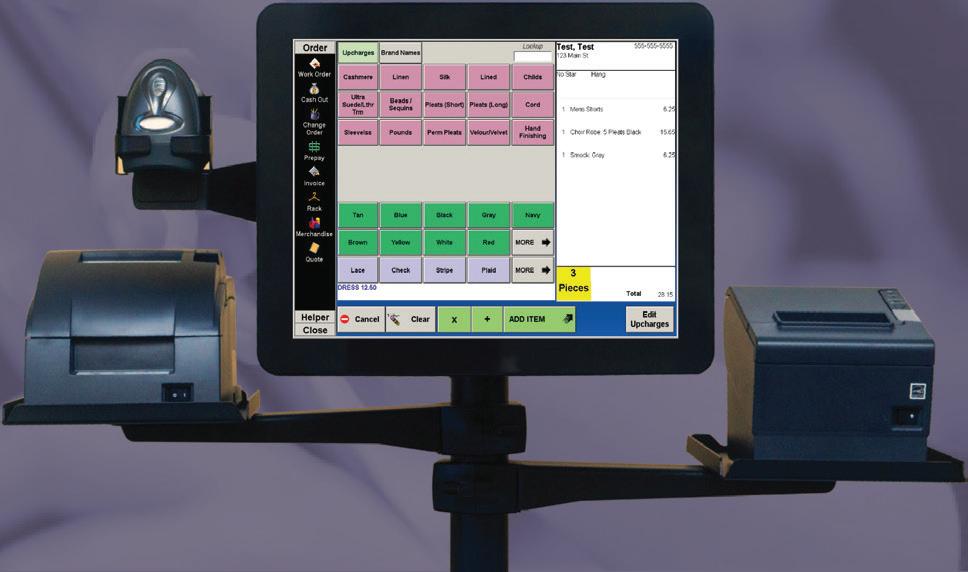
(Continued from page 8)
than the traditional retail operation,” Patel says. “Since we are in the emergency response business, they have to be flexible and skilled in multiple areas.”
“Restoration work ebbs and flows,” Pyne says. “Weather events can contribute to more losses, while mild winters here in the Northeast can reduce claim volume. Our NARD partners in Florida, for instance, and those that border the Gulf of Mexico sometimes see spikes when there is a more active hurricane season and see less volume in quieter years.”
“We experienced a slight decrease at the beginning of the pandemic as clients were worried about having staff in their home,” Windsor-Baughman says. But her company was prepared. “The very day the shelter-in-place orders took effect in California, we had already fully prepared a protocol to protect staff and clients, along with certifying all staff in biohazard courses for the potential exposure to COVID-19. This information was released the next day to all carriers and contractors, ensuring them we were capable of still serving their clients safely.”
Dutch Girl Cleaners, a CRDN member, also had plans in place to handle restoration demands due to wildfires in its part of the state.
While the methods of actually restoring items haven’t been affected by the pandemic, the way cleaners deal with the people involved has changed.
“Adjusters aren’t going out to the claims now,” Wudyka says, “so they’re relying on us as their eyes and ears more now than ever. We have service-level agreements signed with these carriers, so they know what to expect.”
“We’ve been able to offer contactless pickup and deliveries, online video inspections, and continued paperless documents,” Murry says of FRSTeam’s pandemic efforts. “We have also implemented pandemic protocols to ensure higher levels of safety while in homes using personal protective equipment. Our restoration locations with a strong local sales force haven’t seen any lost volume, and many have seen double-digit growth in 2020.”
While offering restoration services is tempting when revenue is down from regular drycleaning services, it’s not a step to be taken lightly.
“Do your research,” Murry says. “Restoration is very different from the retail industry. The claim sizes are significantly larger, storage requirements are much bigger, and you are dealing with multiple customers on each claim. Payments can take longer, consistent relationshipbuilding and sales are important for success, and constant communication is critical.”
If you’re prepared, however, Murry believes that it’s well worth it.
“The restoration field can be some of the most reward ing work you will do,” she says. “You get to help people in their time of need, and the joy you can get from custom ers when you save their most precious items is amazing.”
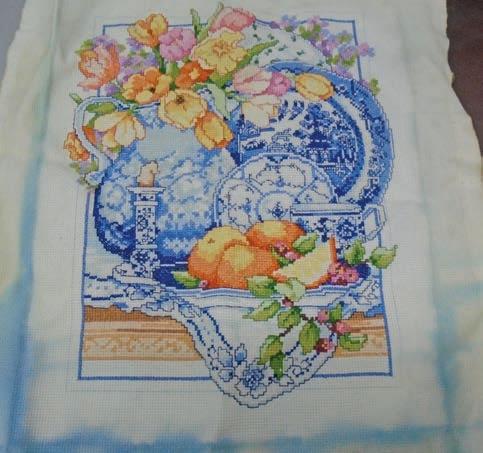
Wudyka is grateful for that customer who trusted him with his first restoration job decades earlier: “In our industry, this is probably the only way you can really, truly have a very lasting, important impact on a family’s life.” he says. “It’s a big responsibility — it’s not dry cleaning for us; you’re restoring lives.”
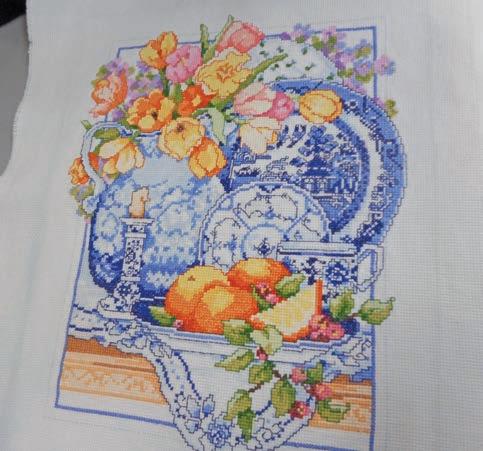


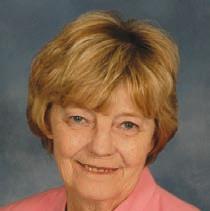
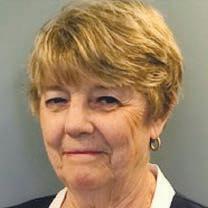
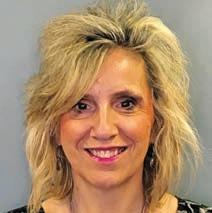
It’s inevitable for any business—the demographics of the customer base shift over time. A younger group comes in and replaces those who are aging out of your system.
Unlike in previous generations, however, the young adults who are now starting to need drycleaning services are often a different breed from those who came before. The way they communicate, the items they bring in and the demands they have of their cleaner are forcing the industry to adapt at a pace that would have been unthinkable just a few years earlier.
What worked in the past has no guarantee of success with this new brand of customer, and cleaners who don’t adjust their approach might find themselves left behind.
While many cleaners have been reluctant to include an app in their business model for customer interaction, Rechelle Balanzat, CEO and founder of the New York Citybased dry cleaner JULIETTE, chose that method to start her business, reaching out to younger customers before opening a brick-and-mortar shop.
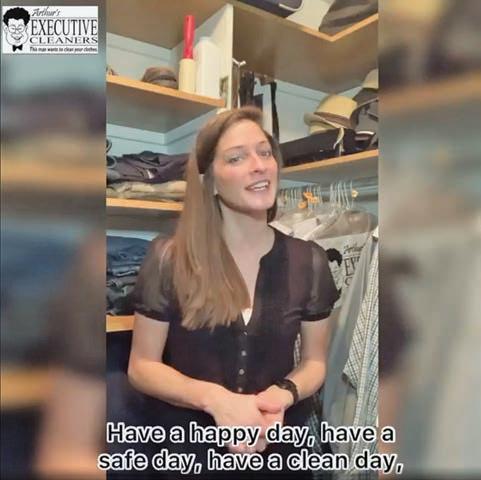
“We went to market with a technology-first approach,” she says. “I launched my app in 2014, and it took me about a year to develop it. Then, in 2017, I opened my first store—a drop store—on the Upper West Side. And then in 2019, I opened our headquarters in the Bronx.”
This new model made a lot of sense to Balanzat when she considered her location and the clients it would serve.
In order to connect with her customers when the pandemic started to lock everyone down, Jennifer Marquardt, a partner of Arthur’s Executive Cleaners in Buffalo, N.Y., started making daily videos—both informative and funny—to post on social media. “I definitely was not comfortable in front of a camera, but I knew, for survival, we had to get to this younger generation and our current customers and speak with them,” she says. (Screenshot by Dave Davis)
“In New York City, the traditional store can really only cover a three- to five-block radius,” she says. “With the app, we’re able to service all of Manhattan because clients can easily request a pickup, and then our driver knows where to go to pick up and bring the clothes back to our store. The customer is able to use the app to monitor the status of their order and pay for it. It’s completely cashless. They get an email receipt, and they’re also able to see their order history.”
For cleaners to maintain their business, let alone expand it, the need to gather younger customers is paramount.
“You want to get them started early so they can form a habit of coming to your cleaners,” says Bobby Patel, owner of Kona Cleaners in Orange County, Calif. Patel is also a founder of the marketing firm BeCreative360. “They’re going to be a valuable part of your client base, so it’s a good idea to reach out to them early.”
The confusion many cleaners have is how to reach out to them. Finding the right solutions means paying attention to their needs and staying current with emerging trends.
“When I first started in the business, which was about 17 years ago, I didn’t have a cellphone glued to my hip,”













What to do today to better serve tomorrow’s clients
If
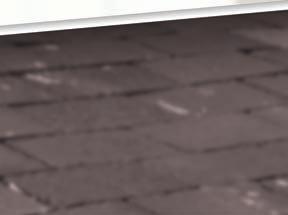
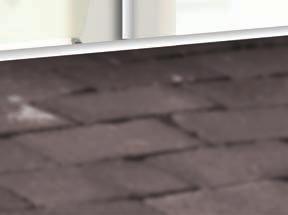
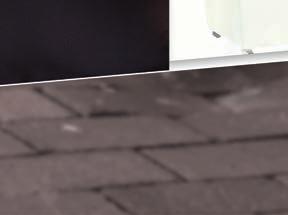
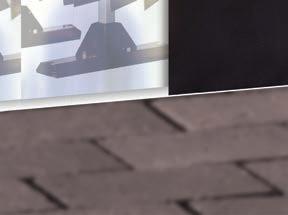
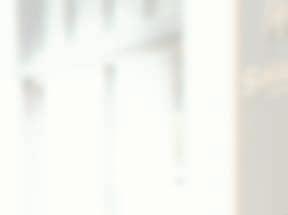
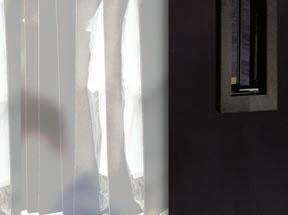
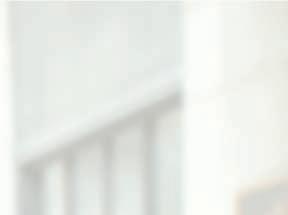
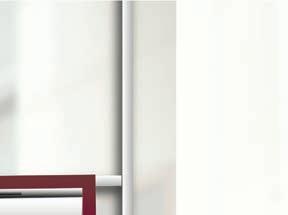
you are having trouble maintaining profits, 24/7 Express can help you gain more revenue without increasing your opera�ng costs. Customers can drop off or pick up at any hour at a secure 24/7 Express kiosk.
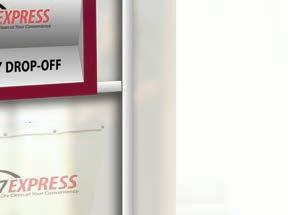
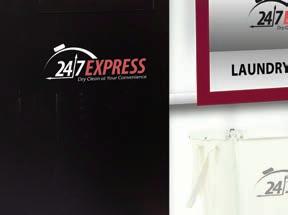
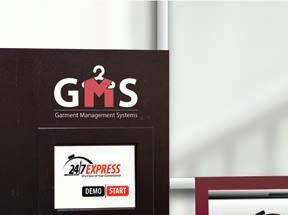
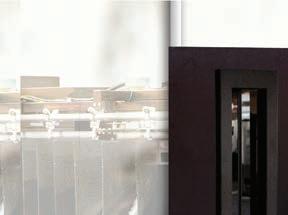
says Jennifer Marquardt, a partner at Arthur’s Executive Cleaners in Buffalo, N.Y. However, she recognized that times were changing and now uses social media extensively to connect with both present and potential clients. This includes making daily videos and releasing them on Facebook, Instagram and her LinkedIn page.
“When the pandemic hit, the first thing I did was grab my camera,” she says. “We had to get out there because everyone was home, sitting on their computer and feeling depressed. We didn’t know what was going on in our world. My first video was about wash and fold, but then it transitioned to just making people laugh and entertaining them.”
Understanding the realities of her customer base and her New York City location, Rechelle Balanzat started her drycleaning business not with a brick-and-mortar store, but with an app. “With the app, we’re able to service all of Manhattan because clients can easily request a pickup,” she says. Balanzat’s company, JULIETTE, now has stores open but the app is still a major part of her business model. (Photo by JULIETTE)

To be effective, Marquardt knew that one of the first rules of marketing is connecting with people where they are.
“The younger generation is on their phones all the time,” she says. “Whether they’re reading an email or looking at some silly video, they’re on their phone. So, how do you get in front of them on their phone? It’s not going to be standing at your front counter just waiting for them to come to you—you’ve got to find a way to go to them now
“I definitely was not comfortable in front of a camera, but I knew, for survival, we had to get to this younger generation and our current customers and speak with them.”



Even before the pandemic struck, the younger set wasn’t as in need of formal business clothes as older generations were. “Business casual” had started eroding the “suit-and-tie” business long ago. Now that many people are working from home, cleaners are seeing what’s really important to this new breed of customer.
“We’re seeing a lot of yoga pants,” Balanzat says. “They’re just wearing pajamas and gym clothes all day.”









Marquardt has experienced the same shift: “Believe it or not, I’ve seen more sweats and jogging pants,” she says. While considered casual wear, these items sometimes re-
quire a lighter touch. “They’re more expensive, so they don’t want to just throw them in the wash where they get the lint from everything else.”
Hats and sneakers are also becoming more popular items for Marquardt’s business.
“These are expensive items that they value,” she says. “These get dirty, and they don’t know how to clean them, so they keep wearing them and eventually just buy new ones. To connect with them, educate them on the fact that you clean hats and sneakers—and if you don’t, learn it. It’s a gateway. It’s a way to get them in the door for items that they value and care about. Then, a couple of years from now, when they’re also using suits, they’ll continue to come to you.”
Another major difference Marquardt sees between older and younger clients is the urgency they place on a quick turnaround.
“Efficiency and timing are key,” she says. “It’s what the younger generation is used to, through no fault of their own. They may procrastinate a little more than your traditional customers, as well. A lot of your older clientele are going towards retirement, and they also tend to pre-plan more, so they don’t need their shirt tomorrow; they might need it for their meeting next week.”
Balanzat has also found time to be a critical factor for the young adults she serves.
“In New York City, recent grads are new to the workforce and are typically putting in at least 60 hours a week because rent is so high here,” she says. “They just don’t have time to take their laundry to the cleaners, let alone do the cleaning themselves. We address that pain point by picking up and cleaning their items through our app.”
When young adults are deciding on a cleaner, Patel says, all your marketing efforts can be wasted if your reputation is lacking, so it’s critical to maintain and bolster your online presence and status.
“They are not going to drive by a store and say, ‘Oh,

our Specialists say:
“We could not survive this Covid crisis without our wedding gown business.”
“We’re even busier with wedding gowns than we were last year. Wish I could say the same about our other business.”
“So thankful for brides!”
join us before June 30: save big and make more money!
Cleaners need help so we’re slashing our fee for exclusive marketing areas by 75%. Learn the best ways to market your bridal gown care and save so much money advertising through us on the world’s top two wedding websites, TheKnot and WeddingWire, that your membership essentially pays for itself. Improve your image when you set yourself apart from ordinary cleaners, and count on us to help you restore vintage clothing, train CSR’s to handle special garments, and make more money!
that’s a nice-looking cleaner. Let me walk in,’” he says. “They’re never going to do that, even if it’s very convenient. They’ll stand outside your store and Google ‘dry cleaners near me’ or do other research on you first. They want to make good decisions based on what their peers are saying.”









One habit that has changed over time is the way younger adults want to interact with companies. Many don’t have the same need for human contact as older generations do and may actually prefer the efficiency of an online-only relationship with their cleaners.
“Over the years with the tech revolution, I’ve noticed that people don’t really want to call,” Balanzat says. “Either they want to text, or they want to request the pickup through the app.”
“The younger generation has shorter attention spans,” Patel says. “They don’t need you to talk to them; they’d rather you not talk to them.”
He has added 24-hour kiosks and drop boxes to his business to facilitate the customer’s experience and believes this type of non-interaction will become more typical.
“It’s going to be more automated,” he says. “There will be customer service representatives (CSR) available parttime, but otherwise, we’re moving toward more kiosks and lockers. Even though the CSR is there, these customers tend to go straight to the kiosk, scan their phone, retrieve the garments, and they’re on the way. So, I think that’s what a store looks like in the future.”
One of the challenges this brings up is preserving customer loyalty without that face-to-face interaction.


“The only way to keep that loyalty is to maintain constant communication,” Patel says. “They don’t like emails, so that means communication via texting or an app. If there is a problem, it needs to be taken care of swiftly. That, and providing the value they want, will keep them loyal.”
Patel finds that customers brought up in the internet age often equate image of a store—both online and in real life— with its perceived quality, so cleaners who want to make inroads with this generation need to take that into account.
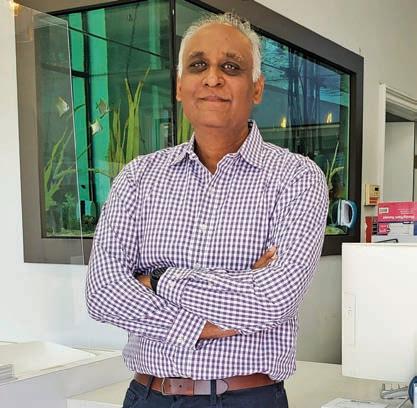
“I would start with the brand,” he says. “You can have a polished social media campaign and website, but if you don’t start with your brand up front, with the basics—the logo, the colors, and so on—it’s going to be a waste of money. They’re not going to select you. When the customer walks in, they want your store to match with what they saw online. Many dry cleaners look like they came out of the 1980s, with the color of their counters and lobbies covered with old, faded posters. We have to look the part.”
Part of that image is also the way information is displayed in the store. “The younger generation is more visual,” Patel says. “They like videos; they don’t like a lot of text. We use digital screens in our lobbies that show the services we provide.”


If staying current—much less getting ahead of the curve—seems daunting, you’re not alone. Even though she started in the industry with a cutting-edge app, Balanzat still feels the pressure.
“The evolution of the industry as a whole and this move towards technology, it’s actually becoming increasingly difficult to keep up with the times,” she says. “When I came into this space in 2014, I thought what I was doing was so cool—and I still think it’s super cool. But, as technology becomes even faster and the younger demographic is increasingly using it, you get the sense of being spread thin. There’s so much going on in the digital marketing space with new platforms that younger people are using. It can be difficult as a business to stay relevant and connect with them as those platforms keep evolving.”
While it might be impossible to keep up with every new trend that captures the younger demographic’s attention, the important thing is to do something to connect with them today.
“You’ve got to get out of your comfort zone,” Marquardt says, “because what you used to do isn’t what you might always be able to do. These are your future customers.”
Be sure to check out the latest episode of the American Drycleaner Podcast, “Selling Young Adults on Dry Cleaning’s Value,” for more from guest Jennifer Marquardt.
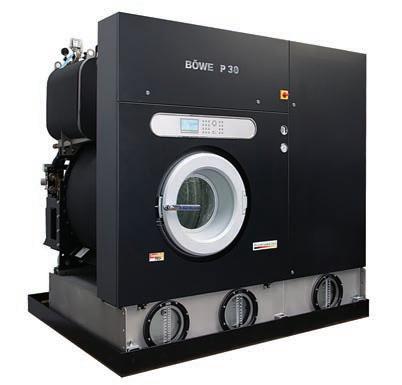
No matter which solvent is used, BÖWE o ers the Premium Line of drycleaning machines to meet cleaners’ needs.
The Premium Line is fully configured to meet or exceed pollution control requirements in both the United States and Europe and o ers an array of optional features that enable the cleaners to perform demanding tasks, BÖWE says.
Standard features such as a variable-speed drive with an electronic balancing system enable spin speeds of up to 600 rpm, the company states, while the SuperDry PDS+ power drying system reduces cycle times and energy costs. With additional features, such as the Slimsorba active-carbon recovery unit, solvent consumption figures of 3,300 pounds of garments per gallon of solvent are achievable.
The Premium Line also o ers the “M” series of multisolvent machines supporting the use of Class III-A solvents such as hydrocarbon, SOLVONK4, cyclosiloxanes (e.g., GreenEarth), HiGlo, Intense and SENSENE. The “M” series o ers capacities of 27 to 66 lbs., and because there is great similarity between the ranges, the company states that BÖWE perc machines can convert to multisolvent operation with minimal changes.
www.bowe-usa.com | 704-234-2818
For cleaners looking for a drycleaning machine with a smaller footprint, Columbia/ILSA’s Vantage Series is designed to fit their needs, the com pany says. The series is available in 40-, 55- and 60-lb. capacities and is designed as a one-piece stainless steel, three-tank platform.
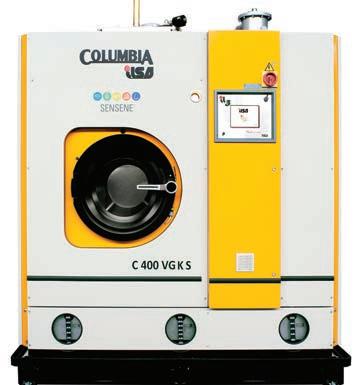
The Vantage Series comes with two independent filtration circuits and an additional post-filter circuit as standard equipment. Other standard features include stainless steel solvent tanks; completely dried button trap; automatic solvent level sensory control; rear drum wash down; in-line solvent heating by refrigeration; in-line solvent cooling; automated additive injection pump; a touch-screen computer; super flow distillation; and a single-stage heated separator.
The Vantage machine is made for today’s solvents, Columbia/ ILSA says, and o ers options normally found on large-capacity machines. The Vantage Series o ers a reduced footprint and lower entry height, making it able to fit in small shops.
www.columbiailsa.com | 800-446-5634
Firbimatic has introduced the new EcoGreen ADVANCE Series of hydrocar bon cleaning machines. This line of machines is available in rigid models ranging in loading capacity from 40 lbs. (18 kg.) to 95 lbs. (40 kg.).
The company states the EcoGreen ADVANCE Series allows cleaners to have the flexibility of using any hydrocarbon Class III-A/B solvent without having to make any changes to the physical construction of the machine.
The EcoGreen model, in stock only at the company’s Woodstock, Ill., loca tion, also o ers a Secure-Lock door locking system that lets the operator know the door is closed and secure before allowing the machine to start the cycle.
Other standard features of the EcoGreen ADVANCE Series include inverter-driven wash and extraction motor; automatic soap injection pump; automatic still overfill and anti-foaming protection; double lint filters; nitrogen safety injection system; adjustable electronic drying controls; easy-access panels at the front of the machine; and more.
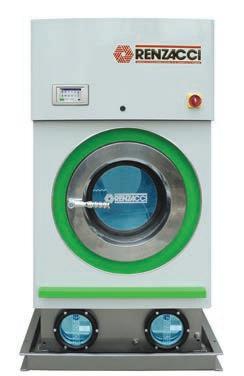
www.firbimaticusa.com | 800-220-0630
Renzacci’s Nebula 2.0— which the company states is one of its most energye icient drycleaning ma chines to date—is designed to lower operational costs by using a dual filtration sys tem rather than traditional distillation. The line also o ers the Combiclean Sys tem, compatible with both hydrocarbon and GreenEarth solvents, giving cleaners looking to move away from perc-based cleaning the ability to use a combination of di erent techniques.
The Nebula 2.0 has two solvent tanks and two different filter systems, and the series is available in 30-, 35-, 45- and 60-lb. capacities. Nebula 2.0 machines are equipped with the Renzacci i-Touch touch-screen control panel for adjustments for specific fabrics.
The model also uses the company’s Dynamic Saving Flow (DSF) system, which Renzacci says reduces power consumption by more than 40%.
www.renzacci-usa.com | 561-644-5517
Unisec says that the non-distilling, no-steam, nowater system used in its drycleaning machines dramatically reduces gas, electric, and water use. According to the company, by using the nondistillation system coupled with its EM technology, cleaners will also see lower maintenance costs.
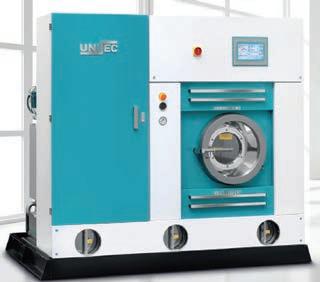
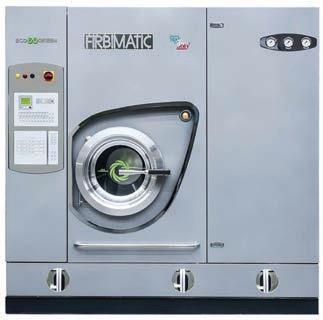
Safety is a major consideration in the design of the line, Unisec says, noting that its machines o er a fire protection system that uses a nitrogen gas blanket, along with temperature and pressure safeties.
Unisec says that its machines, available in 40-, 50- and 60-lb. capacities, are engineered to separate the dark and white solvent lines, preventing solvent contamination. The company also notes that it uses standard sensors, gauges, motors, electric components and other elements readily available in the United States whenever possible, making servicing by local technicians easier.
www.unisecusa.com | 855-600-3636
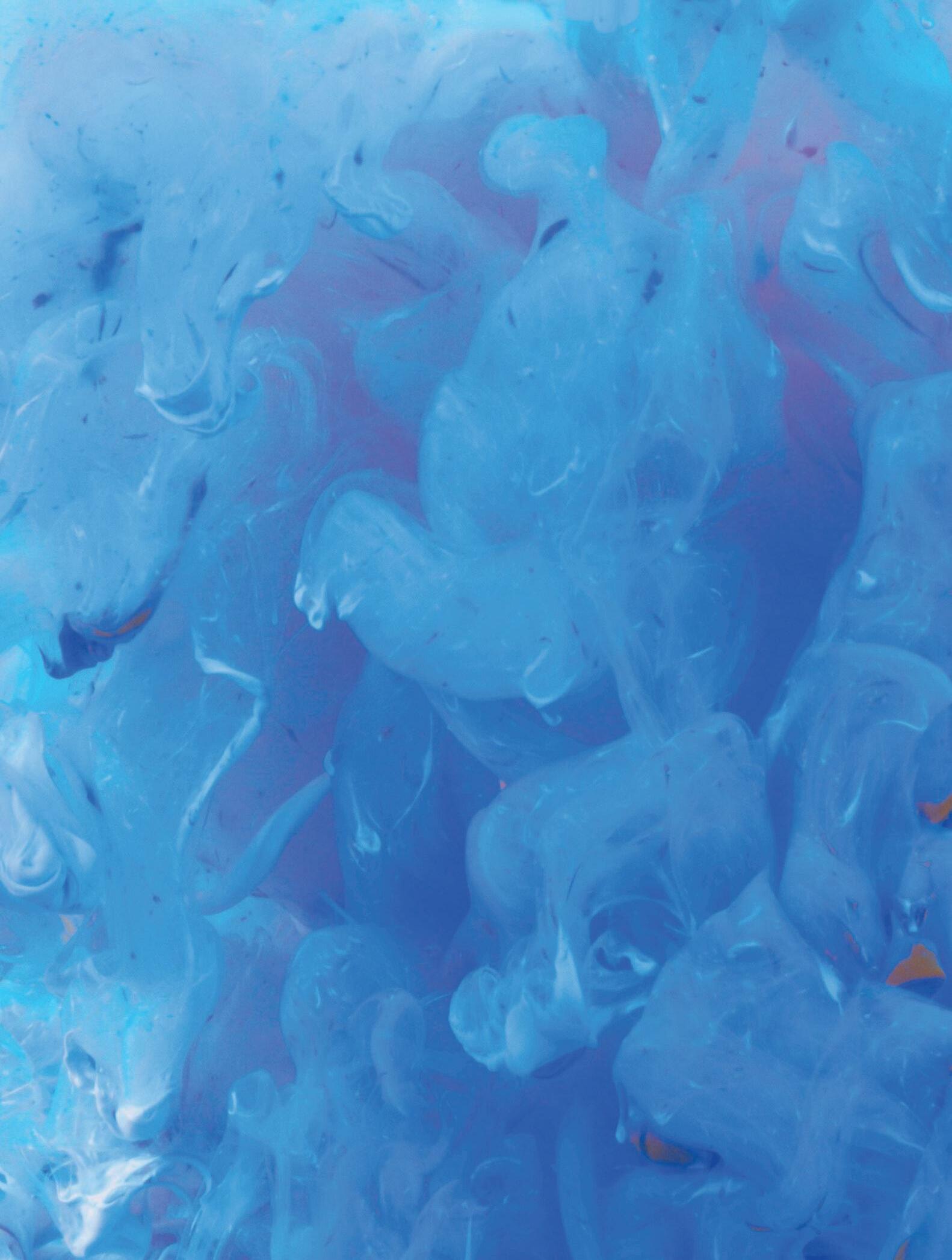



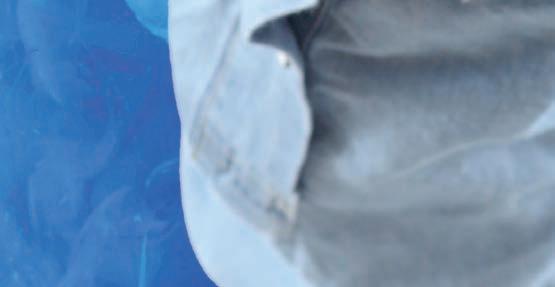

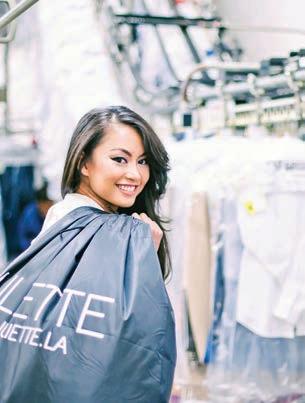



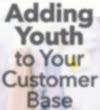
With its Drytec line, Italclean says it is working to give cleaners more control over the cleaning process to meet their needs, both now and in the future.
The Drytec hydrocarbon machines can be either hard- or softmounted, with or without distillation, and can use all solvents on the market today (hydrocarbon, GreenEarth, SOLVONK4, Intense, SENSENE, HiGlow, etc.). Designed for adaptability, the company believes that the line will be able to use solvents the market will o er in the future, as well.
For soft-mounted Drytec machines, Italclean says that a washing cycle can be completed in less than 45 minutes; hard-mounted machines can complete the cycle in under an hour.
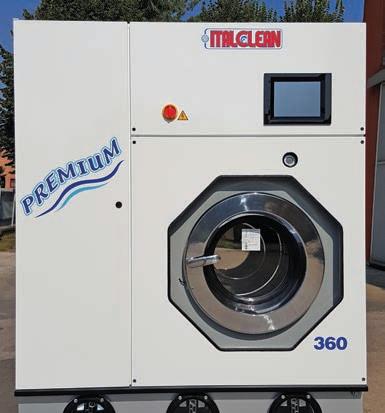
Italclean has also introduced a new touch-screen computer interface, VISION TOUCH, designed to reduce the complexity of using alternative solvents and enable cleaners to better control all aspects of the cleaning process.
www.italclean.com | 781-858-1155
The new Union HL- 800 Series of alternative solvent machines is designed to give cleaners all the information they need to ensure a smooth process.
The series, which features machines ranging in load capacity from 30 to 90 lbs., features up-front filter and temperature gauges for easy reading, front access to primary controls and components, and illumi nated sight glasses in strategic locations for quick visual inspection, the company says.
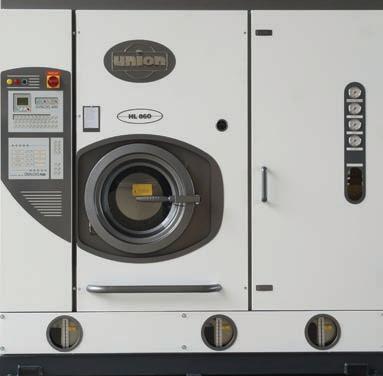
The line also features the Dialog computer system, with 20 factory-set programs to handle cleaning needs, regardless of the type of alternative solvent the cleaner uses. All programs can be customized on-site thanks to simple-write manual overrides. By entering a code, the cleaner can switch from hydrocarbon to silicone solvents and back again without making any mechanical changes to the system. The display continuously monitors and shows solvent temperature, as well as inlet and outlet air temperature.
www.uniondc.com | 800-433-9401
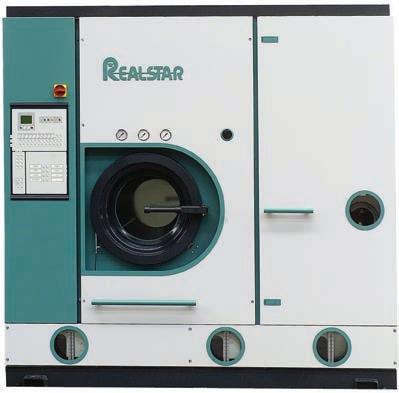
Realstar’s KM and KT 03 Series of alternative solvent machines, available in 35- to 90-lb. capacities, o er versatility in the number of solvent tanks, distillation and non-distillation options, and various filter configurations. The line also o ers a wide or narrow footprint to accommodate the available space.
The company states that its alternative solvent machines meet all requirements for use with any Class III-A solvents, such as hydrocarbon, silicone (GreenEarth) and Rynex. The company’s Pulsar D601 with Combi System o ers 20 various programs for both operation and maintenance of the machine, and enables operators to tightly control the cleaning process.
This series o ers other features, including a multi-stage solvent/water separation system; a large-access loading door; front digital solvent/air temperature display panels; sensors to prevent foaming and bacteria growth during the distillation process; an illuminated front sight glass for still and basket solvent washdown inlet; and more.
www.realstarusa.com | 888-822-7827
LAUNDRY
CITRAZYME One-shot, powdered laundry detergent containing enzymes, oxygen bleach, and
SHOT-SPOT
2021 RATES: One- to five-time rate: $2.20 per word, boldface $2.30 per word. Minimum charge: $25.00 per ad. Call or write for our three- and 11-time rates. If box number is used,
For example, for a September ad, the closing date is August 1st. PAYMENT FOR CLASSIFIED ADS: Must accompany order.
$2000.00 CHEMICALS SELL OR BUY DRYCLEANERS. WE HAVE BUYERS!!! PATRIOT BUSINESS ADVISORS SPECIALIZES IN SELLING DRYCLEANERS IN NJ, PA, DE & MD. CALL LILIANE AT 267-391-7642.
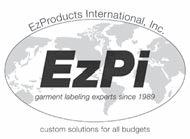
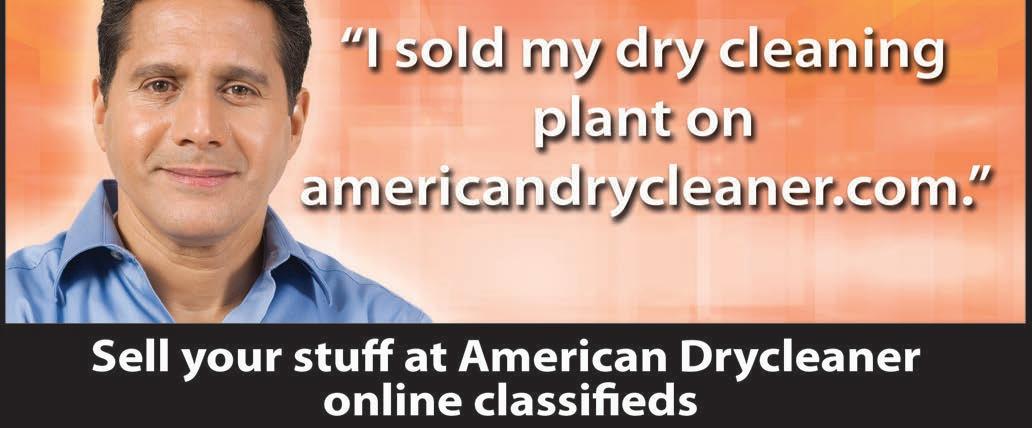
DryCleanerSoap.com
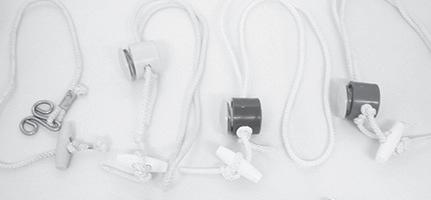
>
•
•
2021 RATES: One- to five-time rate: $2.20 per word, boldface $2.30 per word. Minimum charge: $25.00 per ad. Call or write for our three- and 11-time rates. If box number is used, add cost of 5 words. Display classified rates are available on request. All major credit cards are accepted. DEADLINE: Ads must be received by the 1st of the preceding month. For example, for a June ad, the closing date is May 1st.
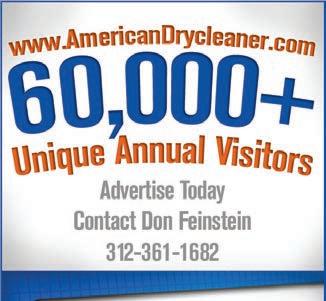
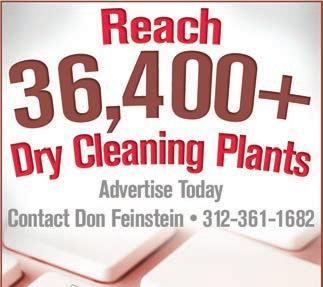

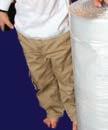

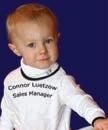
10 YEARS AGO. Drycleaners Ready to Spend — In American Drycleaner’s “Your Views” survey of March 2011, almost two-thirds (66.2%) of the drycleaners responding answered “yes” when asked, “Do you plan to invest in any equipment for your business this year,” with 75% expecting to spend more than $25,000. In fact, 31.8% were looking to spend $50,000 to $100,000. Of the 24.6% who answered “no” — 9.2% were “not sure” — many were taking a “wait and see” attitude, unsure if the economic improvement of the day would last.
35 YEARS AGO. Plain English Guide to Perc — The Environmental Protection Agency (EPA) reported that it was working on a draft version of a “Plain English Guide to Understanding Perc Dry Cleaning Regulations.”


The draft was intended to explain new federal environmental rules, including National Emission Standards for Hazardous Air Pollutants (NESHAP) regulations for air pollution, groundwater contamination, hazardous waste and any other federal statutes applicable to cleaners.
50 YEARS AGO. Recession Reinforces
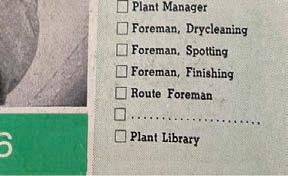
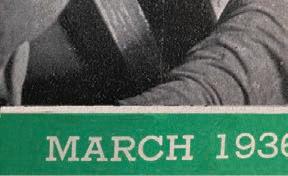
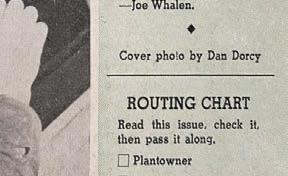
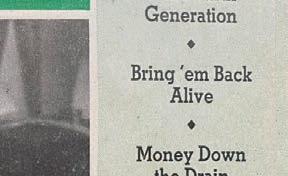
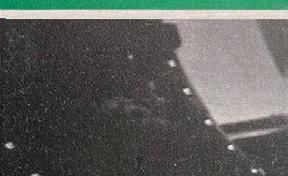
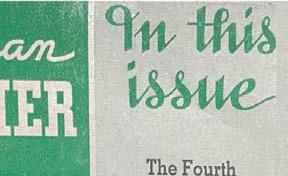




Rentals — “The depressed economic situation has not interrupted the uptrend in the men’s formal wear industry,” a spokesman of one of the nation’s largest producers of tuxedos and dinner jackets told American Drycleaner in 1971. “Probably more men are discussing

recession and wearing tuxedos at the same time than ever before in history.” He attributed this to a boom in the formal wear rental marketplace.
“A vast number of weddings are formal, and there’s also a trend toward dressing formal for anniversaries and dinner parties as well.”
85 YEARS AGO. The Fourth Generation — We may currently be going through difficult times, but the history of Chicago’s Boston Fancy Steam Dye House can give us all a bit of inspiration. This profile of the business — the first drycleaning plant in Illinois — begins with German-born August P. Schwarz
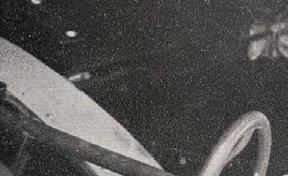
American Drycleaner, March 2021
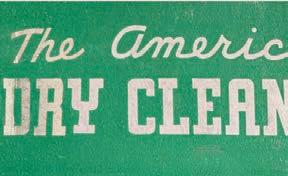
arriving in Chicago in 1855 during a riot (the “Know-Nothing” political party had joined with the temperance crusade in an effort to drive German beer-garden owners out of town). A year later, even in this charged climate, Schwarz started his company, which soon became the favorite cleaner of Chicago’s “twenty-fourcarat” families. Through three wars, four major depressions, and the Great Fire of Chicago in 1871, the family-owned business had survived. Four generations later, it continued to serve its clients while maintaining its sterling reputation.
ADC
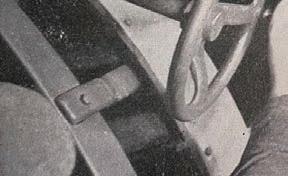 —Compiled by Dave Davis, Editor
—Compiled by Dave Davis, Editor
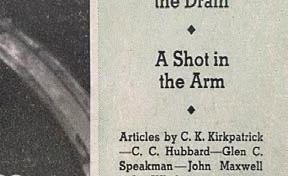
The Parker Boiler tube bundle is extremely flexible and offers a long life with a 25 year warranty against thermal shock.
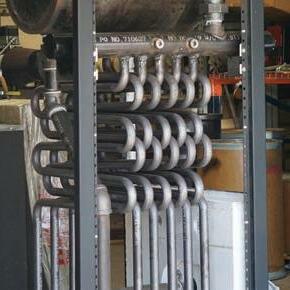
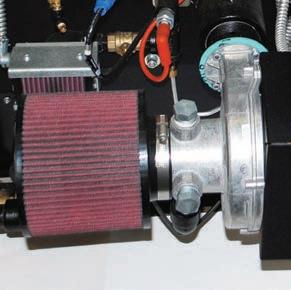
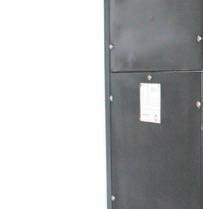
Each unit is Factory Assembled & Fire Tested. 4 years of Field Testing.
Extra heavy boiler tubes 1-5/16” OD. minimum 0.12” (11GA) heavy thickness steel, built for long term service life.
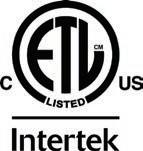
5:1 Burner Turndown Ratio. Digital Pressure Control. Boilers require access on two sides only. Reflex Prismatic Sight Glass. Up to 4” of insulation and 1/2” thick steam drum.
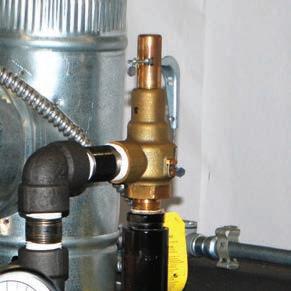
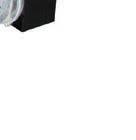
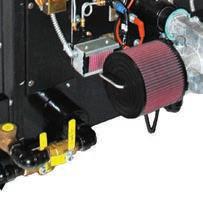
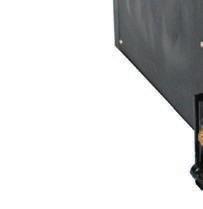
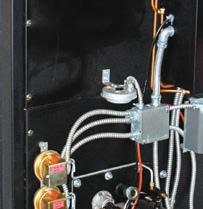
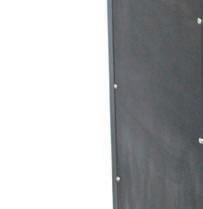
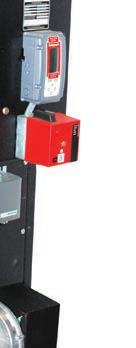
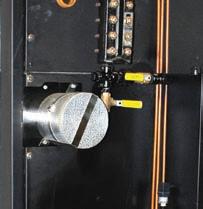
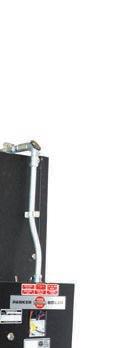
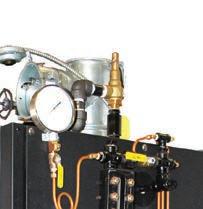
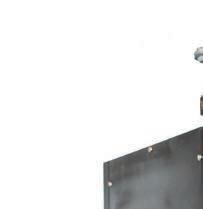
Maximized Sustainability.





GreenEarth Cleaning was formed in 1999 to provide our industry with a safe alternative to perc without the use of hydrocarbon, a VOC that is damaging to the ozone layer. For nine months, the new GreenEarth silicone cleaning process was tested across the U.S. in 25 operating plants. 26,000 test data points were collected to verify the new process would eliminate all future environmental liability before its Founders introduced GreenEarth at the 1999 Clean Show in Orlando. 22 years later, it’s now the largest environmental dry cleaning brand worldwide. www.greenearthcleaning.com
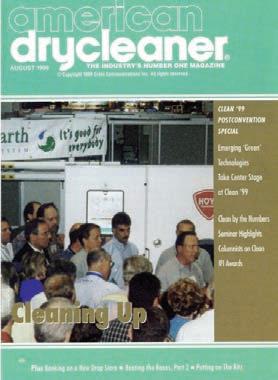
The Beginning



